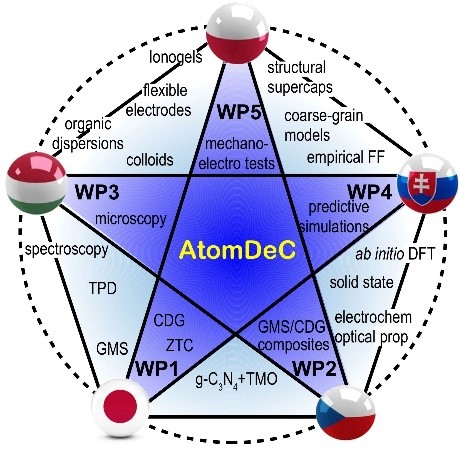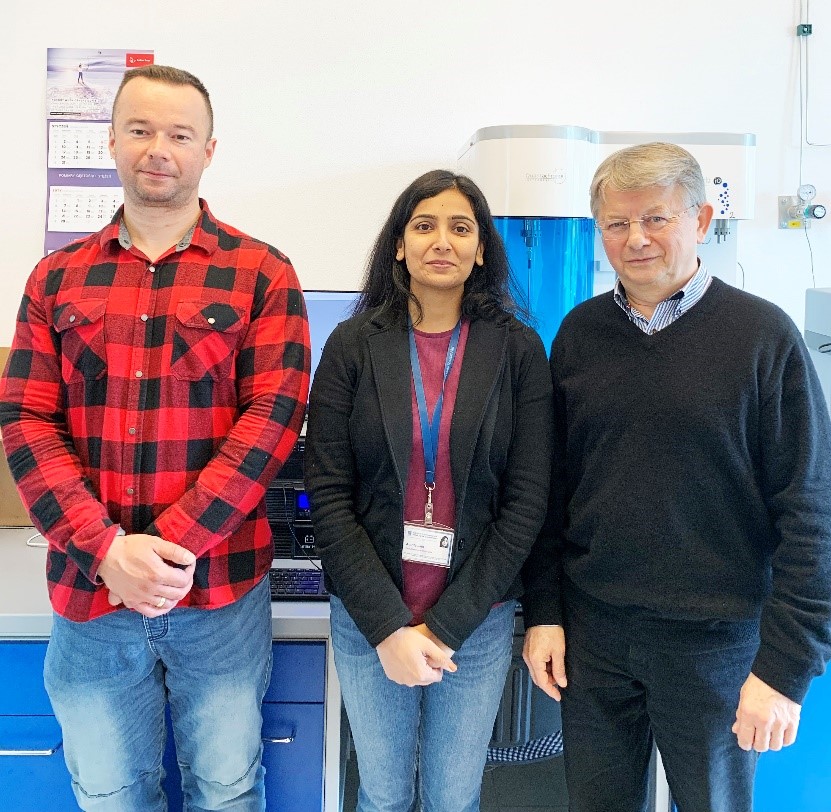IPPT has received funding under V4-Japan Joint Research Program “Advanced Materials”. The consortium comprises of Visegrad Group countries (Poland, Czech Republic, Slovakia and Hungary) and Japan. Along with independent grants from respective, the consortium also received On-Top Funding from International Visegrad Fund (IVF) and IPPT is the coordinator of those funds.
The 2nd V4 Japan Joint Research Call was dedicated to the cooperative research projects in the field of Advanced Materials; Materials for extreme environments, Materials for electronics and energy harvesting and Materials for laser technologies and Covid related materials.
IPPT PAN coordinates the V4 Japan Joint Research Program for the first time. The project titled: “Atomic Design of Carbon-Based Materials for New Normal Society [AtomDeC]” is scheduled to be carried out from 1st March 2022 to 28th February 2025.
The consortium is formed by:
- Advanced Institute of Materials Research Tohuku University, Japan (Principal Leader)
- Institute of Fundamental Technological Research, Polish Academy of Science, Poland (Secondary Leader)
- Department of Chemistry, VSB-Technical University of Ostrava, Ostrava-Poruba, Czech Republic
- Institute of Chemistry (IChem), Faculty of Science and Informatics (FSI), University of Szeged (USZ), Szeged, Hungary
- Institute of Inorganic Chemistry (IIC), Slovak Academy of Sciences (SAS), Bratislava, Slovakia
In the IPPT PAN, the project is carried out by dr. Amrita Jain (secondary project leader) from the Department of Mechanics of Materials, Division of Advanced Composite Materials.
About the project:

The expression “New Normal'' has been used for marking economic/societal goals after the 2008 financial crisis. Nowadays, this term is used for emerging lifestyles at the end of the COVID19 pandemic. Our proposed work relates to the “New Normal Society” by means of contributing to the creation of an upgraded, human-centred society (Japanese “Society 5.0”), where new technologies serve sustainable developments, mitigate the threat of future pandemics, and are devoted to human welfare. In order to achieve these targets, our technologies must undergo smart upgrades and improvements toward maximized sustainability and achieve high degree of functionality within the strictest environmental protocols. We aim to contribute to the worldwide target via the development of advanced carbon-based materials (CBMs). CBMs are key in everyday applications and devices: batteries, power generators, energy converters, mobile devices, structural materials, environmental filters, health care, and medical products.
The AtomDeC Consortium is formed from representatives of two continents: each V4 country and Japan. Our collective scientific power is focused on advanced CBM target materials by adhering to the concept of “atomic design”, which has been challenging to achieve for C-materials with disordered/amorphous framework. Our integrated work packages will be executed by experts in synthesis, analysis, and theory giving credibility to the deployment of the concept of "atomic design" for CBMs.
The AtomDeC Consortium directly addresses the Joint Call for developing advanced materials for extreme environments, electronics and energy harvesting, such as gas storage, flexible electrode/supercapacitors/conductive thin-layers, microelectronics, and optically active materials with high voltage/structure stability. The unique mechanical properties of porous CBMs and our combined engineering expertise allow for targeting COVID19-related material design, such as anti-virus filters.

Fig. 1. Right to left: prof. Michał Basista, dr Amrita Jain (project leader at IPPT PAN), dr Kamil Bochenek
For regular updates, please visit the project website: atomdec.info
















